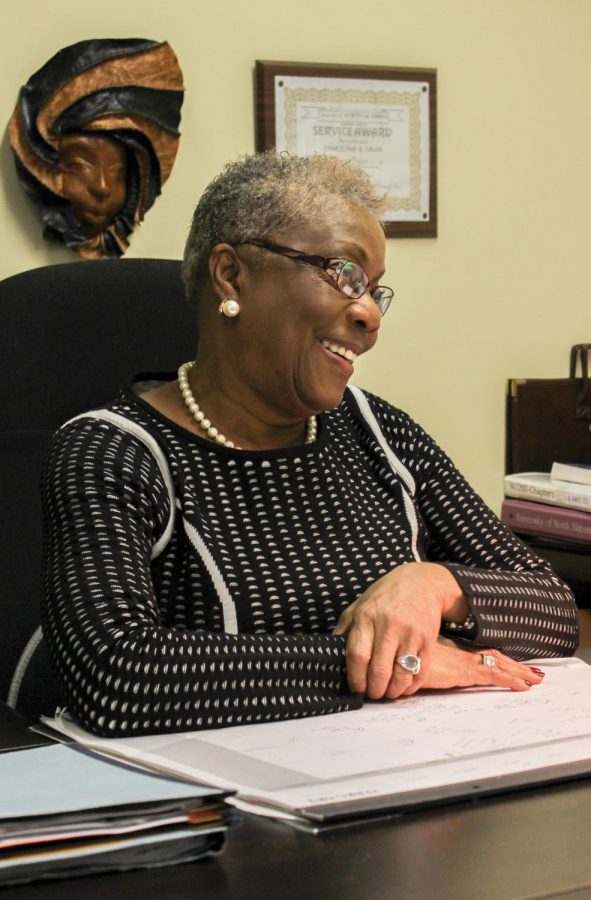Professor fights for campus diversity
February 12, 2015
From being the young black girl pulled off the city bus to being denied entry into college because of the complexion of her skin, Ernestine Davis waged war on diversity from the beginning.
Davis, professor of nursing, said she fondly remembers her family’s involvement in the civil rights movement.
“We were never hit, punched or knocked down, but we had always refused to sit in the back of the bus,” she said. “My mom was a very strong-willed person and she would say, ‘When they tell you to go to the back of the bus, do not go. You sit in the front and don’t say anything.’”
Davis said the Atlanta police would forcibly remove her and her sisters from the bus and drive them to the station.
“My sister and I remember them saying, ‘We really do admire you girls because you all are taking a stand for something you believe in, and I wish other people were like you,’” she said.
Davis did not stop standing up for equality when the civil rights movement ended.
“I’ve always been a person who believes in taking a stand,” she said. “Sometimes I may be a little outspoken, but that’s my personality. I can’t sit quietly and see injustices being done and not say anything about it.”
Professor of English Lisa Minor said Davis is one of the most influential African-American professors on campus.
“She has just been such a champion for civil rights on this campus,” Minor said. “I once spoke with a woman who talked about her like she was Martin Luther King.”
Davis showed her passion for helping minorities early in her career at UNA.
“When I first came to this campus there wasn’t much around here in terms of a diversity of students,” she said. “I went to President Robert Potts’ because we didn’t have a multicultural committee or anything in place. He said, ‘If you can come in with the purpose, goals and objectives, I’ll look at it.’ I brought it to him the next day, and he said it looked good.”
Out of that meeting came the first Multicultural Advisory Committee at UNA, she said. The committee’s purpose was to identify diversity issues on campus and take them straight to the president.
Davis said she has helped many students since she started her career at UNA.
“I think she’s a great mentor for a lot of students,” said freshman Madison Abernathy. “She encourages me more than anything to keep doing well in my class.”
Davis said she found more problems exist among under-represented students.
“In my mind I call them the invisible group. They’re here, but no one listens to what they have to say,” she said. “I felt there was something I could do to make a difference.”
Although Davis has been teaching at UNA for 35 years, she said she still feels her work on campus is not yet complete.
“We all deserve equality, and that’s where I’m coming from. That’s my passion,” she said. “I just have a passion. I like to see students be successful. My greatest joy is to see students walk across that stage, get their degree and become somebody.”
At the end of the day, Davis said she does not do her work for herself.
“There are so many people on this campus that I’ve helped,” she said. “But it’s not about me. It’s that I just want them to be able to achieve what they are capable of achieving, be placed in positions they are capable of achieving and be recognized for what their capabilities are.”












